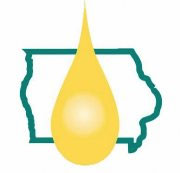Advanced biofuel producers are calling on Congress to take action now to ensure that tax incentives for cellulosic ethanol continue past 2012.
 In a letter to Congressional leaders, the Advanced Ethanol Council (AEC) asked for a multi-year extension of the Cellulosic Biofuels Producer Tax Credit (PTC) and the Special Depreciation Allowance for Cellulosic Biofuel Plant Property, both of which are set to expire December 31, 2012.
In a letter to Congressional leaders, the Advanced Ethanol Council (AEC) asked for a multi-year extension of the Cellulosic Biofuels Producer Tax Credit (PTC) and the Special Depreciation Allowance for Cellulosic Biofuel Plant Property, both of which are set to expire December 31, 2012.
AEC Executive Director Brooke Coleman noted in the letter that the incentives “are vital to the ongoing development of the domestic advanced ethanol industry. To ensure stability in the marketplace, and prevent unnecessary job losses, Congress should provide long‐term extensions of these provisions (5+ years).”
As new ethanol biorefineries are beginning construction, the AEC emphasized the importance of consistent federal policy to this kind of multi-billion dollar investment.
“The advanced and cellulosic biofuels industry is now in the process of building new plants, innovating existing production facilities with emerging technologies, and introducing new product streams that will allow the renewable fuels sector to become more profitable, diversified and efficient,” wrote Coleman. “Several billion dollars have been invested in advanced biofuels development with the expectation that Congress will stay the course with regard to its commitment to the industry. A tax increase on advanced biofuels at this time would curtail investment and undercut an industry just starting to close deals and break ground on first commercial plants.”
The AEC is asking Congress to extend these important tax incentives this year as part of a final tax extenders package as they are set to expire next year. “As Congress considers the extension of a number of tax provisions for the clean energy sector, we would also like to highlight the importance of timing. The mere prospect of the expiration of the PTC and Special Depreciation Allowance for cellulosic biofuels in 2012 will start to affect projects that take 18 months to build, and could drive our industry into a series of ‘fits and starts’ that has dampened investment in other domestic clean energy sectors for decades.”


 The groups, which includ
The groups, which includ  The letter from the organizations noted that “preventing the EPA from implementing the use of E15 for cars, pickups and SUVs made in model year 2001 and newer, further contributes to our nation’s reliance on foreign oil. Extensive testing has been done on E15 and it has been found to be a safe and effective fuel for use in the vehicles approved in the waiver. There has been no evidence to the contrary that would indicate problems in any vehicle regardless of vintage.”
The letter from the organizations noted that “preventing the EPA from implementing the use of E15 for cars, pickups and SUVs made in model year 2001 and newer, further contributes to our nation’s reliance on foreign oil. Extensive testing has been done on E15 and it has been found to be a safe and effective fuel for use in the vehicles approved in the waiver. There has been no evidence to the contrary that would indicate problems in any vehicle regardless of vintage.”


 According to the data, exports of denatured and undenatured ethanol which are not eligible for VEETC totaled 121.4 million gallons. That is just short of the record 127.4 million gallons of exports set in July 2011.
According to the data, exports of denatured and undenatured ethanol which are not eligible for VEETC totaled 121.4 million gallons. That is just short of the record 127.4 million gallons of exports set in July 2011. When it comes to domestically-produced ethanol, Spencer says the expiration of the Volumetric Ethanol Excise Tax Credit (VEETC) at the end of this year provides new opportunities for the industry. “The domestic ethanol industry has been preparing for this moment for some time,” he said. “The energy table is rather large and there’s plenty of chairs at the table, particularly biofuels of all types. We’re going to see our fuel sources continue to diversify and in that diversity is going to come strength.”
When it comes to domestically-produced ethanol, Spencer says the expiration of the Volumetric Ethanol Excise Tax Credit (VEETC) at the end of this year provides new opportunities for the industry. “The domestic ethanol industry has been preparing for this moment for some time,” he said. “The energy table is rather large and there’s plenty of chairs at the table, particularly biofuels of all types. We’re going to see our fuel sources continue to diversify and in that diversity is going to come strength.” Early last year, the United Soybean Board released the findings of a
Early last year, the United Soybean Board released the findings of a 
 “These radio ads are designed to encourage Iowans to learn more about the industry’s starting line-up of performance, quality, support for Iowa agriculture, green-job creation, as well as price and availability,” said Jon Scharingson, Director, Sales and Marketing at
“These radio ads are designed to encourage Iowans to learn more about the industry’s starting line-up of performance, quality, support for Iowa agriculture, green-job creation, as well as price and availability,” said Jon Scharingson, Director, Sales and Marketing at  Third quarter sales reports of E85 in Iowa indicate that 2011 sales have already exceeded total sales during 2010, according to the
Third quarter sales reports of E85 in Iowa indicate that 2011 sales have already exceeded total sales during 2010, according to the